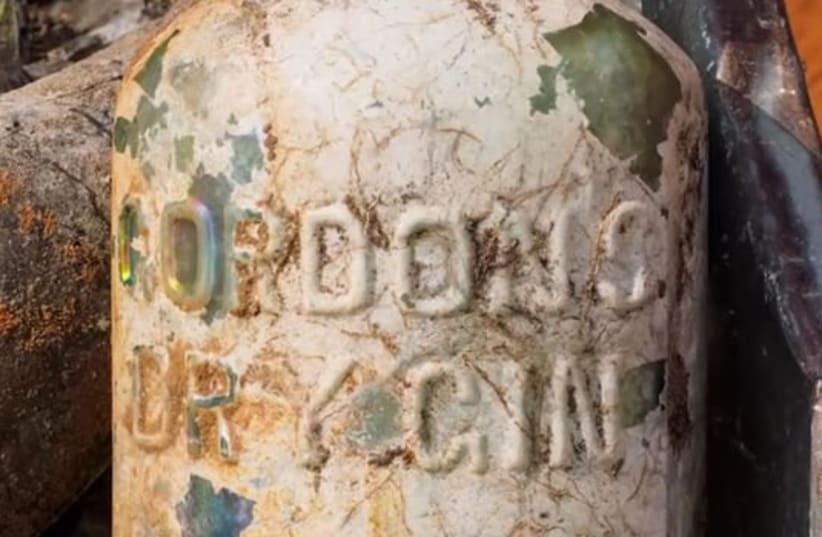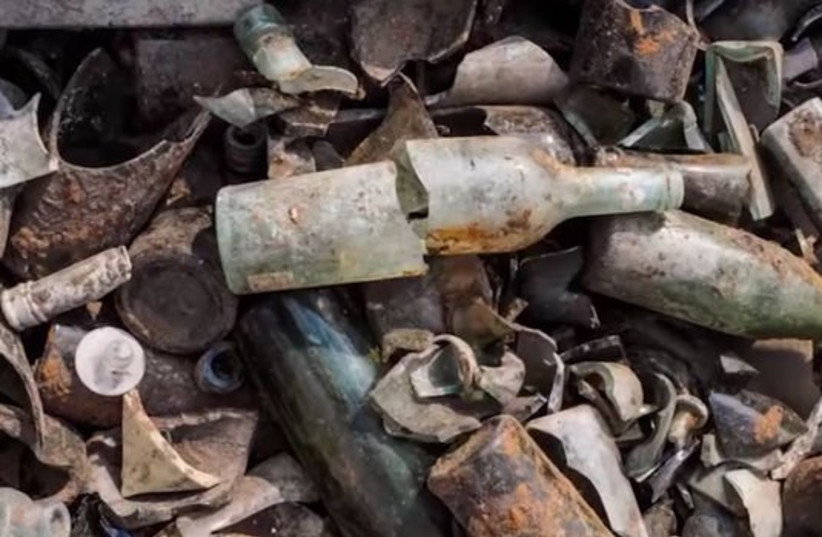Hundreds of glass alcohol bottles from a World War I British army camp were uncovered in an archeological dig near Ramle, providing a glimpse into the lives of the soldiers during their campaign against Ottoman forces in 1917.
The bottles were found in a building that dates back to the Ottoman Empire but was used by British forces, according to the Israel Antiquities Authority (IAA) Excavation Director Ron Toueg.
A trash pit was found adjacent to the building, and provided a glimpse into the daily lives of the British troops.
Nearly 70% of the waste that was uncovered was glass bottles, which had contained European wine, beer, gin and whiskey. The large amount of alcohol suggests that the soldiers drank extensively, perhaps out of boredom or as a way to cope with the arduous and sometimes terrible experiences of war.
"On November 15, 1917, the Egyptian Expeditionary Force under the command of General Allenby conquered the area around the towns of Lod and Ramle," explained Sherri Mark, architect, conservator and researcher of the British army in Palestine, in a video uploaded by the IAA.
"Before occupying Jerusalem, the army encamped in the area where the archaeological excavation took place: the headquarters at Bir Salam – Ramle Camp and Sarafand Camp. The Army was based there for about nine months until a decision was made to continue the country's conquest," she explained.
Some of the findings included parts of uniforms, such as buttons and belts, as well as the tip of a British officer's swagger stick, which they liked to carry under their armpits. The swagger stick is the first if its kind found in Israeli excavations.
The most prevalent finding, however, was alcohol.

